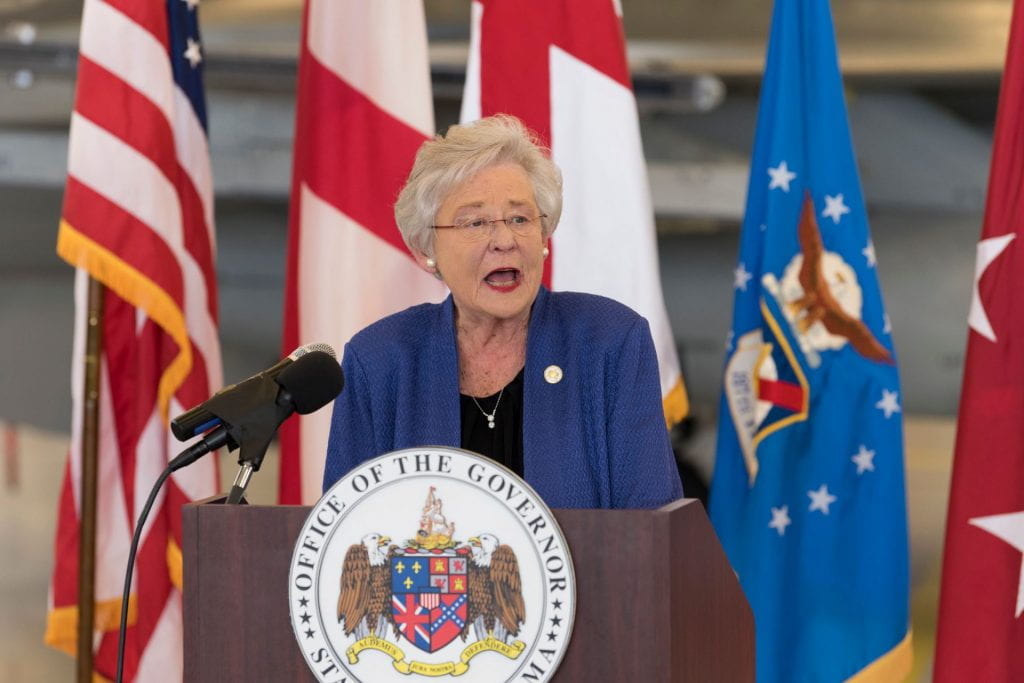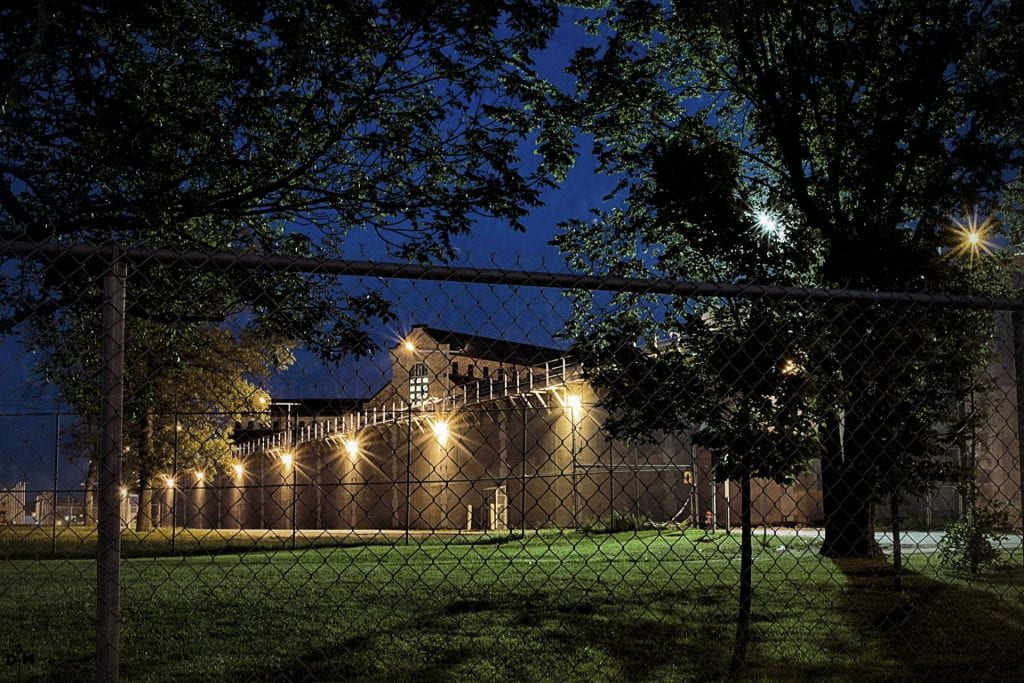As the world is reeling from the coronavirus outbreak and the constant inundation of new cases and increasing death rates, I wanted to call your attention to an important event that has largely been overlooked in the midst of the chaos. On March 5th, 2020, a man by the name of Nathaniel Woods was executed by the state of Alabama via lethal injection at the William C. Holman Correctional Facility in Atmore, Alabama. The 43 year old Woods was convicted because of his role in the fatal deaths of three Birmingham, Alabama police officers in 2004. Two entities could have stepped in to stop the execution: The Supreme Court and the governor of Alabama, Kay Ivey. The Supreme Court did delay the execution for three hours, but Kay Ivey refused to step in stating that she believed justice must be served in the name of the law. The execution of Nathaniel Woods was unjust and unfair in many ways and highlights the severe problems within the Alabama Justice system.
In the case of Nathaniel Woods, it is important to note that he was convicted of being an accomplice to the deaths of the three police officers. The man who confessed to the actual act of shooting and killing the police officers is Kerry Spencer. In fact, Spencer confessed to acting alone in the crime that landed both him and Woods on the Alabama death row. He testified this in his own trial and claimed to be acting in self-defense, highlighting that the shooting was not planned. During his confession, Spencer very clearly stated that Woods ran away from the scene and could not be considered an accomplice to the act. According to his former appellate attorney, Spencer may never be executed as Woods was. When Spencer was convicted in 2005, the jury that found him guilty recommended that he receive life in prison without parole, instead of the death penalty. A 2017 Alabama law that removed the power of the judge to override non-unanimous jury verdicts in the cases of the death penalty effectively protects Spencer. So why, when Spencer confessed to the deaths of the police officers, is Woods dead? A primary factor is that Wood’s jury never heard Spencer’s claim of self-defense. An even larger factor is that the Alabama death penalty laws are inherently flawed and unjust.

The jury that convicted Woods reached a non-unanimous verdict of 10-2 recommending the death penalty. Alabama is one of two states in the United States that allows a non-unanimous verdict to result in the execution of a defendant. The death penalty laws within Alabama have been seriously criticized by civil right leaders and have been called unjust under the accusation that the criminal courts are unfairly biased against minorities. Despite Woods’ family and a few high profile figures including Martin Luther King III, the son of the late Martin Luther King Jr., and Kim Kardashian West contending that much of the evidence supported Woods’ innocence, neither Governor Kay Ivey nor the Supreme Court intervened on Woods’ behalf.
Woods’ case is unfortunately one in a long line of executions that highlights the many problems with the Alabama justice system. Before its abolishment in 2017, Alabama allowed judges to over-ride a unanimous jury in order to impose death sentences. While this is a step in the right direction, Alabama was the last state in the United States to make this change. Alabama has had 67 executions and 9 exonerations since 1976. This means that for every seven people executed, one has been exonerated. As of today, at least 107 of the death sentences in Alabama have been reversed and resulted in a reduced sentence or an exoneration. These statistics leave Alabama with a very high error rate. After 2010, Alabama has executed a series of defendants with questionable convictions: two defendants suffering from mental illness and three defendants whose judges over-rode the jury’s decision for life imprisonment in favor of the death penalty. Alabama also has no statewide public defender system and does not pay appointed attorneys enough, resulting in a lacking quality of counsel. Until 1999, capital trial attorneys were paid $40 per hour for work in-court and $20 an hour for work out-court. The out-court work compensation could only reach $1000. During this time, almost half of the current death row convictions occurred. Now, capital trial attorneys are paid $70 per hour with a cap of $2500, a rate that is noticeably below market rates. The lack of funding has resulted in a reduced quality of work and inadequate representation for defendants who are fighting for their lives.

In January of 2020, the governor of Alabama appointed a panel to issue recommendations to address the problems of the Alabama prison system reported in a 2019 report released by the Justice Department. The report identifies the major problems with Alabama’s prison system. These problems included prisoners being assaulted and tortured on a routine basis with the knowledge and participation of the prison guards. Such abuse clearly violates the Eighth Amendment that protects against cruel and unusual punishment. It also included problems within prisons such as overcrowding, understaffing, a large presence of weapons and drugs, corruption, and raw sewage. Many corrections officers have been arrested and charged with crimes such as bribery and drug trafficking. In February of 2019 a judge found that the conditions for mentally ill patients within the prison system were unconstitutional. Since the beginning of 2019, at least 29 of 28,000 people died of preventable deaths in the Alabama prison system, a big contrast to the national average of prison homicides of seven per 100,000 prisoners. The recommendations provided by the state appointed panel have been called “common-sense” and do not address the more serious problems. If these problems are not fixed, the prison system will be operated by an outside party.

There are a significant number of problems within Alabama’s death penalty policy and within the Alabama prison system in general. There is no need to prove that a defendant was at least 18 years of age at the time of the crime within the state. There is insufficient protection for mentally ill defendants. And the Supreme Court is the only thing within Alabama that is preventing the executions of defendants with an IQ of below 70. Changing and reforming the broken Alabama death penalty system will be a long process, during which there is a possibility for many more innocent people to die. The decision to end the judicial override system in 2017 was a step in the right direction but not nearly far enough. Since then, more changes have been made to protect the already broken system, such as the 2018 decision to use nitrogen hypoxia, a method of suffocation, as a backup execution method. There is hope that the execution of Nathaniel Woods would push Alabama to make serious changes. However, this hope has not yet come to fruition. Some changes that would reform the system instead of protecting it would include: requiring a unanimous agreement from the jury to sentence people to death, requiring prosecutors to prove that the defendant was at least 18 years of age at the time of the crime, and acknowledge and end the racial bias that contributes to the death penalty practices. Ultimately, even after these changes are made, the most positive change to the Alabama death penalty system is to eradicate it once and for all.

